1. Jury Duty
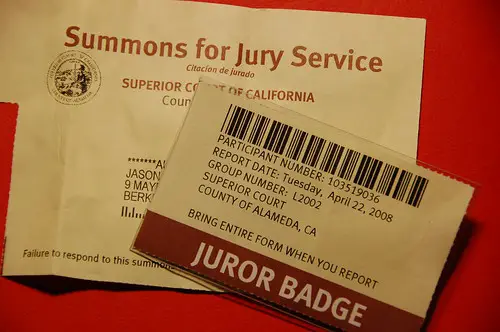
Doing your civic duty has never felt so… inconvenient. Between work disruptions, opaque instructions, and sitting in a windowless room for hours, jury duty is a uniquely American mix of honor and hassle. The selection process can be confusing, the compensation is minimal, and the coffee is always bad. But we’re told to feel proud, not put out.
The right to a jury trial is enshrined in the U.S. Constitution, but the actual mechanics of jury service haven’t evolved much since the 19th century. While it’s crucial for justice, many people experience it as a bureaucratic time-suck. Some courts have modernized with apps and virtual orientation, but most haven’t caught up. It’s less a civic celebration than a test of your patience.
2. The Girl Scout Cookie Hustle

It’s marketed as teaching entrepreneurship and leadership skills, but let’s be real—most of the time it’s parents doing the hard sell at the office. Kids do learn something, sure, but the logistics of cookie sales fall heavily on adults. Inventory management, money handling, and transportation become a family affair. It’s a seasonal hustle, not just a badge opportunity.
The Girl Scouts of the USA began cookie sales in the 1910s to fund troop activities. Today, it’s a $700 million annual operation, with branding and marketing to rival any major business. But like many “empowering” traditions, the burden falls disproportionately on families with fewer resources. It builds character, yes—but it also builds stress.
3. Thanksgiving Dinner

In theory, it’s a heartwarming family feast where gratitude takes center stage. In practice, it’s a multi-day production complete with spreadsheets, meal prepping, and a kitchen that looks like a war zone by 3 p.m. on Thursday. Hosting Thanksgiving means getting up at dawn, juggling 12 side dishes, and pretending your cousin’s political takes aren’t ruining the stuffing. Everyone eats in 20 minutes and you’re left with three hours of dishes.
The tradition dates back to the 17th century, but the modern version exploded in complexity with the invention of mass-produced cookbooks and televised holiday specials. What was once a communal harvest meal has turned into a high-stakes culinary performance. Hosting is especially brutal, with studies showing women still do the lion’s share of the prep and cleanup. It’s “empowering” if you consider stress-induced cortisol empowering.
4. PTA Meetings

Joining the Parent-Teacher Association is billed as a noble way to shape your child’s educational experience. But it often ends up being unpaid administrative work dressed up as parental involvement. Think: endless fundraising coordination, debate over bake sale logistics, and low-key power struggles over who brings the juice boxes. All under the warm glow of fluorescent lights at 6 p.m. on a Wednesday.
PTA culture surged in the mid-20th century as public schools leaned into parental engagement. But it disproportionately relies on the time and labor of mothers, especially stay-at-home parents. For working parents, the meetings feel like a stressful time-suck. It’s community involvement, sure—but it’s also exhausting, unpaid labor with questionable impact.
5. Black Friday Shopping

Brave the crowds! Seize the deals! Or, more accurately, wake up at 4 a.m. to stand in line outside a big-box store, only to maybe save $30 on a TV you don’t really need. It’s consumerism disguised as a patriotic sport.
Black Friday became a thing in the 1960s, largely driven by retailers looking to boost holiday sales. It’s since ballooned into a full-contact chaos ritual, complete with stampedes and pepper spray incidents. The pressure to participate is marketed as a family bonding opportunity—because nothing says “holiday spirit” like elbowing someone for a discounted blender. Empowering? Only if you enjoy capitalism in combat mode.
6. The American Road Trip

The open road, adventure, freedom! Also: gas station restrooms, fast food fatigue, and kids melting down in the backseat. Planning a road trip is like running a logistics company: routes, budgets, entertainment, bathroom breaks, hotel check-ins. But sure, let’s call it a carefree tradition.
Road trips became popular in the 20th century with the expansion of the U.S. highway system and the cultural boom of car ownership. They’ve been romanticized in everything from Kerouac novels to Disney movies. But modern realities like traffic, rising gas prices, and trip-planning burnout make them less spontaneous than they seem. Freedom doesn’t always feel like freedom when you’re trapped in a minivan for nine hours.
7. Home Renovation Projects

Nothing says “self-reliance” like demo-ing your own kitchen over a three-day weekend. The DIY ethos is pitched as a way to save money and express creativity, but often ends in sore backs, splintered patience, and emergency runs to Home Depot. The “after” photo might be Instagram-worthy, but the in-between usually involves dust, doubt, and marital tension. At some point, you question every life choice that led you to this pile of drywall.
This tradition owes much to the rise of home improvement TV in the 1990s and early 2000s, which glamorized the idea of doing it all yourself. But most of those shows are edited for drama and rarely show the hidden costs—both emotional and financial. Many Americans take on renovations without the skills or time to finish them properly. So while it’s framed as empowering, it often just adds another layer of domestic pressure.
8. School Spirit Week
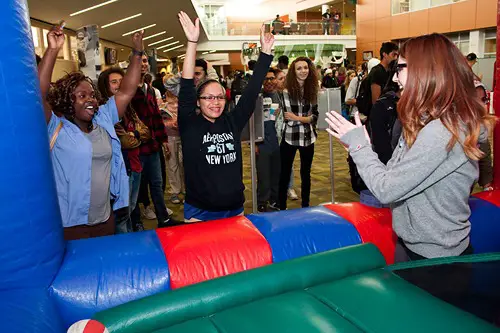
Spirit Week is sold as a way to build community and pride in one’s school, but often feels like a week-long costume contest with homework on the side. Parents scramble to assemble outfits for Wacky Wednesday and Career Day while students juggle sports, assignments, and extracurriculars. The pressure to participate—or be the odd one out—makes it more stress than celebration. And teachers are usually left coordinating everything on top of lesson plans.
The tradition likely started in the early 20th century as a morale boost during homecoming season. But in recent years, it’s turned into an Instagram-fueled production that leaves little room for spontaneity. The workload falls not just on students, but on entire families. Fun in theory, but in practice? It’s themed chaos.
9. High School Reunions
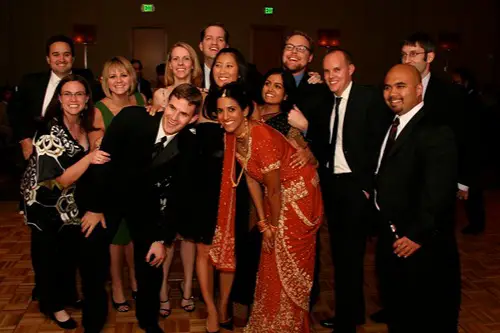
Reconnecting with old classmates sounds wholesome—until you remember you have to explain your entire life to semi-strangers over lukewarm chicken. Organizing or attending a reunion involves emotional prep, travel logistics, and awkward small talk with people you haven’t seen in 20 years for a reason. It’s like a job interview, performance review, and family dinner all rolled into one. Nostalgia doesn’t come cheap—or easy.
The American high school reunion dates back to the early 1900s, originally intended to foster community among alumni. Social media has since made them feel redundant—why fly across the country when you already know who’s divorced and who started a pyramid scheme? Yet the tradition persists, buoyed by societal pressure to “show up and show out.” It’s meant to be empowering, but often feels like emotional labor with a side of stale cake.
10. The Backyard Barbecue
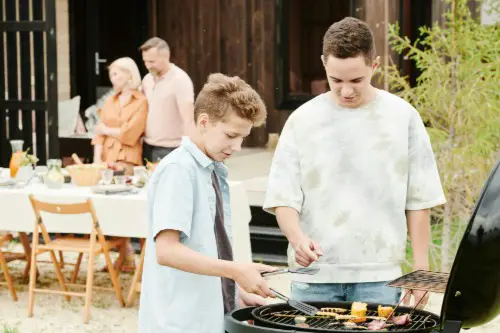
Ah yes, the all-American cookout—where you’re supposed to “relax” while standing over a 400-degree grill in 90-degree heat. Nothing says leisure like sweating through your shirt while flipping burgers for 20 people who showed up hungry and uninvited. The host rarely gets to sit down, and by the time the food is served, it’s lukewarm and the mosquitoes are in charge. Yet somehow, it’s framed as the pinnacle of summer fun.
The tradition of backyard barbecues gained steam in the 1950s as suburban living became mainstream. It was marketed as a social bonding activity, especially for men, who could “master the grill” as their domain. But in reality, the labor involved—prepping, cooking, cleaning, hosting—adds up fast. If this is empowerment, why does it feel like a second job?
11. Voting
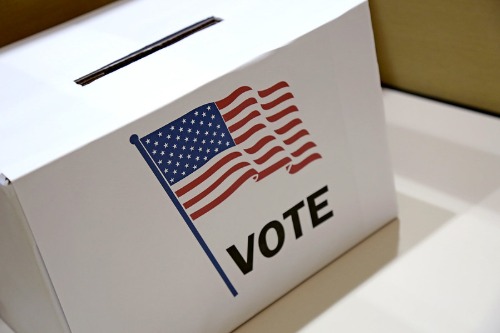
Civic duty, yes. Fun? Not really. Between researching ballot measures, carving out time from work, standing in line, and navigating confusing ID laws, voting often feels more like paperwork than power. It’s necessary, but let’s not pretend it’s a party.
While voting is the cornerstone of democracy, turnout in the U.S. is consistently lower than in most other developed nations. One reason is how inconvenient it can be—voter registration deadlines, limited polling hours, and ballot complexity are all barriers. And despite all the “I Voted” stickers and Instagram selfies, many Americans feel disconnected from the process. We celebrate it as a freedom, but it’s one that still makes you jump through hoops.
12. Spring Cleaning

Out with the old, in with the back pain. Spring cleaning is supposed to refresh your space and your soul, but often ends in exhaustion and existential dread over your belongings. It’s a ritual that feels more obligatory than joyful, especially when it devours entire weekends. Cleaning out closets isn’t self-care—it’s labor.
The tradition has roots in various cultures, from Iranian Nowruz to Jewish Passover prep, and became mainstream in the U.S. during the 1800s when coal soot built up indoors over winter. Today, it’s marketed as a fresh start—especially in the age of minimalism and Marie Kondo. But few people feel empowered when they’re scrubbing baseboards at 11 p.m. on a Saturday. It’s a chore in empowering clothing.
13. Hosting Baby Showers

Celebrating new life is lovely—until you’re elbow-deep in Pinterest boards, coordinating games no one wants to play. Hosts are expected to throw Instagram-worthy events with themes, food, favors, and floral arrangements. The mom-to-be may get the gifts, but the host gets the stress. And let’s not forget the cleanup.
Baby showers became popular in the mid-20th century, part celebration and part consumer ritual. While they offer emotional support and essential gear to expectant parents, the pressure to perform has only grown. Especially in an era of “gender reveals” and social media perfectionism, the expectations can be overwhelming. It’s generosity, yes—but also a whole lot of unpaid work.
This post 13 “Empowering” American Traditions That Feel Suspiciously Like Chores was first published on American Charm.


